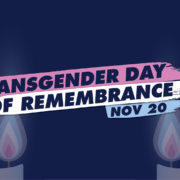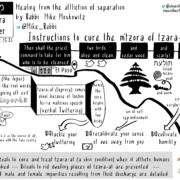Graceful Companionship / Graceful Masculinity: Tetzaveh
 Part of a periodic Torah series on graceful masculinity and Jewish values.
Part of a periodic Torah series on graceful masculinity and Jewish values.
וְאַתָּה תְּצַוֶּה אֶת-בְּנֵי יִשְׂרָאֵל, וְיִקְחוּ אֵלֶיךָ שֶׁמֶן זַיִת זָךְ כָּתִית–לַמָּאוֹר: לְהַעֲלֹת נֵר, תָּמִיד.
And you will command the Children of Israel that they shall take for you clear olive oil, crushed, for illumination, to light a lamp continually. (Exodus 27:20)
Although G-d is speaking to Moses, Moses is addressed as “you.” Not only is Moses’s name omitted from the first verse of the Torah portion, his name is not mentioned in it at all! The Baal Haturim understands this phenomenon as a fulfillment of Moses’s request from G-d that he would like to be erased from the Torah if G-d wouldn’t forgive the Jews for the sin of the Golden Calf (Exodus 32:32).
Perhaps the reason why this location is chosen, for Moses’s perceived absence, is because “to light a lamp continually” is a reference to learning Torah, (L’horos Nosson). As King Solomon (Proverbs 6:23) teaches “a commandment is a lamp, and the Torah is light.” Moses, by removing himself here, is exemplifying the teaching: “The matters of Torah do not endure except in one who considers himself as if they are nothing.” (Sotah 21b).
The word “erased” מח, is also an allusion to the מח, 48, ways of acquiring the wisdom (Avos 6:6) of the Torah, and is necessary in forming the word “wise” חכם. True knowledge leaves an impression and connects us to G-d. The Talmud teaches that: One who walks along the way without having someone to accompany them should occupy themselves with words of Torah, as it is stated (with regard to words of Torah): “For they shall be a chaplet of חן, grace, to your head, and chains around your neck.” (Proverbs 1:9 & Sotah 46b).
“Tetzaveh” is a language of commandment, and also of connectivity. When we relate to G-d through the learning of Torah, then it accompanies us on our journey. It’s noteworthy that the Talmud chooses to highlight this benefit of Torah study when one is alone. We are taught (Pirkei Avos 3:2) if two are together and do not speak words of Torah then it is a meeting of scoffers. There is a unique, and perhaps deeper, connection when we are guided by those who are not physically in our presence.
Our attachments affect and influence us. The Talmud (Taanis 5b) declares “Jacob our father never died.” The Rabbis challenge this claim by quoting the scriptures that mention his funeral. The teaching is then clarified by stating “Just as his descendants are alive, so too is he still alive.” When we affect another, their related actions are also an extension of our impact.
Yocheved, Moses’s mother, is credited by the Midrash with giving birth to 600,000 because of the role her son played in leading the nation to Mount Sinai. This is especially true for the learning of Torah.
Reish Lakish (Avodah Zarah 3b) says: anyone who occupies themselves with Torah at night, the Holy One, Blessed be G-d, extends a thread of kindness over him by day, as it is stated: “By day, the L-rd will command G-d’s kindness, and in the night G-d’s song shall be with me” (Psalms 42:9). Rashi explains this Divine extension of kindness as “the person presenting with grace to others.”
We must strive to be Talmidei Chachamim, students and practitioners of wisdom. When we allow G-d’s wisdom to guide our path in life, then we are always traveling with great company.

By R. Mike Moskowitz.









